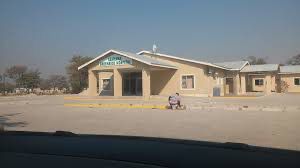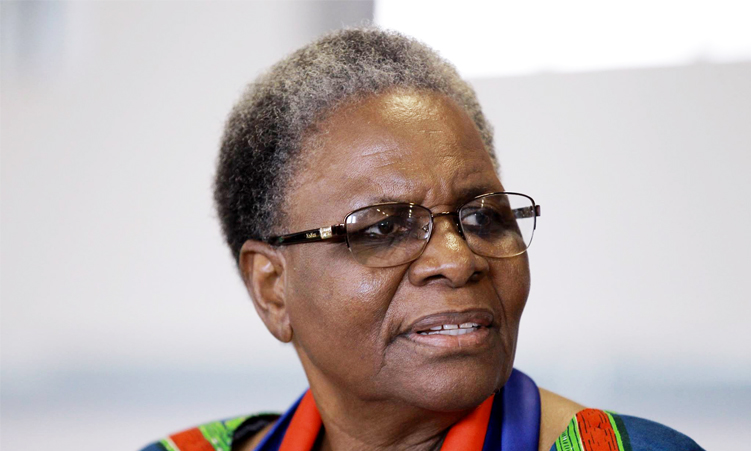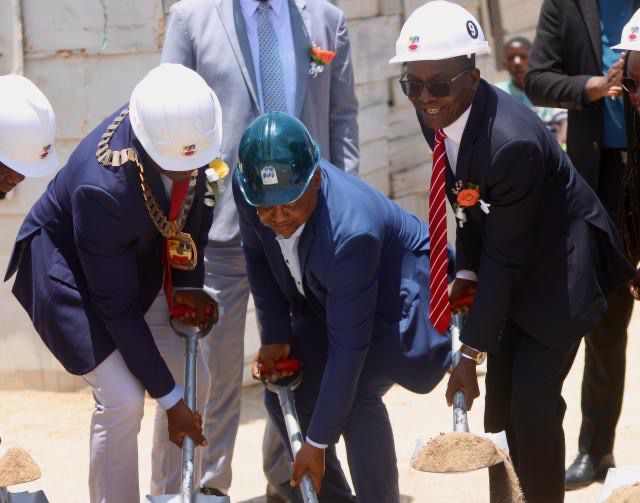N$42 million for three weeks’ work.
Nothing at all wrong with that? Or is it something that in itself warrants suspicions of corruption?
These are some of the questions that came to the fore in the High Court in Windhoek on Friday when legal teams representing the Prosecutor General and the three people accused of fraud, corruption and bribery in connection with a contract for Chinese-made X-ray security scanning equipment to the Ministry of Finance squared off against each other in the first courtroom test for Namibia’s new Prevention of Organised Crime Act.The Act was used for the first time to target assets allegedly tainted by criminal activity when the Prosecutor General asked the High Court on July 6 to issue a restraint order over an array of assets connected to Public Service Commissioner Teckla Lameck, her business partner, Kongo Mokaxwa, and Chinese national Yang Fan.Judge President Petrus Damaseb granted the order, in terms of which a list of specified assets – including fixed properties, bank accounts and cars – have in effect been frozen, as they may not be dealt with as long as the order remains in effect.The assets are claimed to have been tainted by alleged illegal proceeds pocketed by Lameck, Mokaxwa and Yang after the Ministry of Finance signed a contract with a Chinese manufacturer of X-ray security scanning equipment, Nuctech Company, which was represented by Yang, in May last year.CHINESE DEALIn terms of the contract, Nuctech had to deliver security scanners to the Finance Ministry at a total cost of about US$55,34 million. The Finance Ministry had to pay US$12,828 million to Nuctech from its own resources, while the rest of the money would have been provided under a concessional loan facility from the Chinese government.'(T)he Namibian Government Funding is to be used solely for the advance payment for the Seller to start the production of the whole contract goods,’ part of the agreement between Nuctech and the Finance Ministry states.The Finance Ministry transferred US$12,828 million (the equivalent of about N$127,5 million at the time) to Nuctech at the end of February.Teko Trading CC, a close corporation of which Lameck and Mokaxwa are the sole members, entered the picture on February 10 this year when it and Nuctech signed an ‘Agency Agreement’ and a ‘Contractor Consulting Service’ agreement.In a later agreement between Nuctech and Teko Trading, dated May 19, the total Nuctech agreed to pay Teko Trading for its services was set at US$12,828 million – the same amount the Finance Ministry had to pay Nuctech in terms of its May 2008 agreement with the Chinese company. Early in March – three weeks after Nuctech and Teko Trading signed their first two agreements – the close corporation invoiced Nuctech for consulting services it claimed to have performed.Finance Ministry Permanent Secretary Calle Schlettwein has however told investigators from the Anti-Corruption Commission that Teko Trading was never involved in the contract or its negotiation, the court has been informed. If he knew the money paid by the Ministry was not to be used to start the production of the X-ray equipment, but would instead be divided between Lameck, Mokaxwa and their associates, the Ministry would not have paid the US$12,828 million in the first place, Schlettwein is also claimed to have informed the ACC.Between March 11 and 12, Nuctech transferred over N$42,061 million – the equivalent of some US$4,229 million – to an account of Teko Trading, it is claimed. By June 2, Teko Trading’s account had been emptied again.The main beneficiaries of the account were Lameck, who received some N$9,39 million, Mokaxwa, who received N$8 million, and Yang, who received over N$16,8 million.’DRACONIAN LAW’On Friday, the legal team representing Lameck, Mokaxwa and Yang launched what could be the first of many assaults on the restraint order. They asked Judge President Damaseb and Acting Judge Theo Frank to cancel the order as having been granted erroneously in the first place.After hearing arguments from senior counsel Jeremy Gauntlett, representing Lameck, Mokaxwa and Yang, and fellow Cape Town senior counsel Geoff Budlender, representing the Prosecutor General, the court extended the order until August 7, by when a judgement on the application to rescind the restraint order could be given.'(T)his truly demented application’, Gauntlett called the Prosecutor General’s request for the restraint order at one point in his arguments.He told the court that the Prevention of Organised Crime Act is clearly a draconian law that allows the Prosecutor General to go to court without giving notice to the people whose assets are about to be at stake, and to then obtain an order over assets that entails a deprivation of the use of someone’s own property.In the application that was before court on July 6, the Prosecutor General failed to adequately set out the particulars of the offences that Lameck, Mokaxwa and Yang are claimed to have committed, Gauntlett argued.To say that the US$12, 828 million paid by the Finance Ministry had to be used only for the physical start of production of the security scanners is ‘contrived naivety on the part of the Government’, Gauntlett said.On the Ministry of Finance’s claim that Teko trading did very little for the N$42 million it has been paid, Gauntlett commented that his personal opinion also happens to be that footballers Cristiano Ronaldo and David Beckham do very little for the amounts of money they are paid – but that does not make the scale of their earnings a crime.’REEKS OF CORRUPTION’Gauntlett, with his usual skill, ‘kicks up a lot of dust’, Budlender commented when he started his argument. He told the court to ask itself what it was seeing before it.’We see a case that reeks of corruption,’ Budlender answered his own question. He said a small group of people had obtained for themselves N$42 million for work done over a period of three weeks – and to top it off, work that was not even necessary, he argued.At this stage, the court should only be able to find that Lameck, Mokaxwa and Yang may be convicted at a criminal trial, and sufficient evidence to support such a finding is before the court, Budlender argued.He said the Prosecutor General does not have a problem that Nuctech did not spend the US$12,828 million on the physical production of the scanners. She however has a problem with what the company spent the money on: sending it back to Namibia to be distributed between Teko Trading’s two members and Yang, Budlender added.If one looks at how the N$42 million was used by Teko Trading, it is clear it was not consistent with the way money would be used by a legitimate corporation, Budlender said.Lameck, Mokaxwa and Yang were not in court on Friday.
Stay informed with The Namibian – your source for credible journalism. Get in-depth reporting and opinions for
only N$85 a month. Invest in journalism, invest in democracy –
Subscribe Now!






